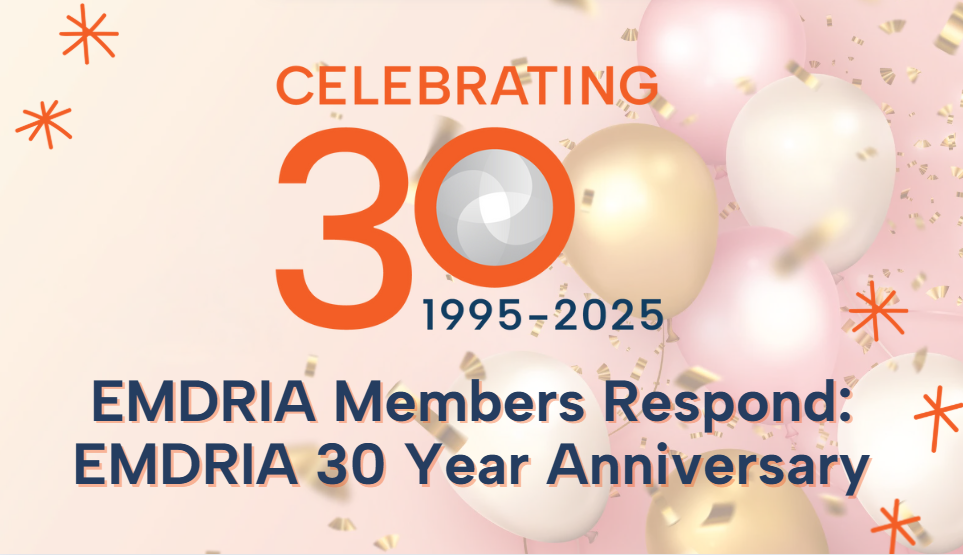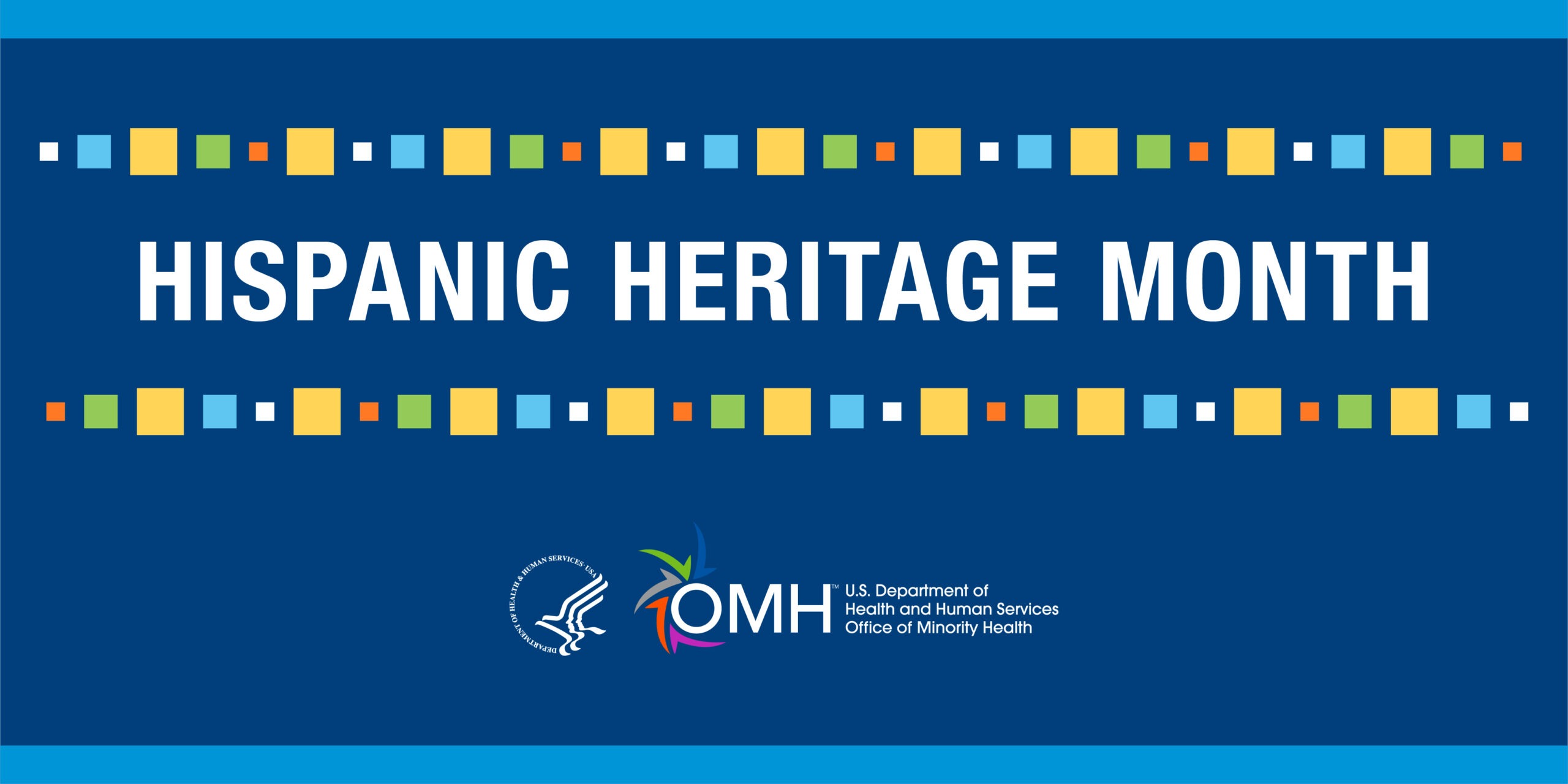EMDR therapists can celebrate Hispanic/Latinx Heritage Month by getting to know the challenges that this community might bring into therapy. Hispanic Heritage Month is observed from September 15 to October 15 in the United States to honor Hispanic and Latinx communities’ rich and diverse cultural contributions. This period was chosen because several Latino countries have their Independence Day Celebrations, including Belize, Chile, Costa Rica, El Salvador, Guatemala, Honduras, Mexico, and Nicaragua.
While “Hispanic” is a term most commonly used, many people prefer Latino/Latinx/Latine as a way to reference the many different countries in Latin America where folks may have roots. We appreciate Terry Blas’ comic on Vox that helps clarify these terms.
We asked EMDRIA members for video or written responses to the following:
“How have you used EMDR therapy to reprocess some of the challenges faced by the Hispanic and Latino/x/e community?”
***NOTE: Play the video and click on the ‘CC’ icon in the lower right-hand corner for closed captioning on the videos. ***Adriana Alejandre, LMFT “The Latine and Hispanic community tend to express emotion somatically, and adapting EMDR therapy to enhance emotional and somatic awareness is an important element to break barriers. Bringing in cultural references helps the clients integrate EMDR therapy in a way that their nervous system can connect with while also increasing rapport. When resourcing with clients, we have used Latine historical figures in our community that symbolize the healthy, nurturing parts of marianismo, and empowerment. While selecting DAS preferences for reprocessing, Spanish music with beats or ancestral bilateral rhythmic practices are integrated as options. I have found that this also helps clients feel comforted as they reprocess their memories. Additionally, for some clients, we conclude sessions by using affirmations in Spanish, which tend to have words that can’t be felt or translated with the same power in English. ” *** Esther Arredondo, LMFT ***Sabrina Sartori Rocha Chouinard, LISW *** edin denison, LCSW, LICSW “They reprocessed fear of white people, Eurocentric beauty standards, and experiences at public schools that left them feeling like “I’m not enough.” These were reprocessed successfully!” *** Maribel Faucett, LPC-S *** Angelica Figueroa, LCSW “Latine clients consistently sought out EMDR Therapy due to the need to process and heal from generational trauma, oppressive cognitions, the disconnect from their culture to survive the United States culture, amongst other traumatic situations. Latine clients have described that these situations caused them to chronically be in, what clients have described as survival mode. Through EMDR Therapy, I have worked with Latine clients to turn the volume down on the survival mode. After reprocessing, Latine clients share that healing from the trauma, gave space for a new connection with themselves, culture, family, and community. Speaking strictly from my own personal experience as a consumer of EMDR Therapy, I have found that the reprocessing of my complex PTSD, has given me the space to reconnect with my Mexican roots, develop connection to my community, and further develop my blended identity of two cultures.” *** Iliana Gelles, LMFT ***Dr. Rocio Hernandez, PhD, LMFT, LPCC *** Jacqueline Diaz Maldonado, LMHC “I am a Latina/Hispanic Licensed Mental Health Counselor born and raised in Puerto Rico. I am licensed in the states of MA and CT where the presence of Hispanics is very notable. I am proud to be able to see clients from all over Central and South America as well as people from all over the world. My main specialty is attachment-based EMDR and I have been able to use EMDR to reprocess the main challenges of invalidating childhood experiences the include domestic violence and machismo and their impact on current relationships. Resourcing and using interweaves that can help clients reparent themselves have been extremely helpful especially since reprocessing childhood experiences create new ways to see themselves apart from the stigma of being raised by very dominant males and codependent mothers.” *** Maria Molina, LCSW “EMDR therapy has proven to be a powerful tool in helping the Latino/Hispanic community reprocess deeply rooted challenges often shaped by cultural beliefs and societal stigma. In many Latinx communities, mental health struggles are mistakenly viewed as signs of weakness or a lack of resilience. EMDR offers an educational approach that dismantles these misconceptions by explaining how trauma and stress impact both the brain and body. Through EMDR, clients are guided to safely explore their experiences, allowing them to process trauma without judgment. This method fosters a sense of curiosity and understanding about their mental health, creating a safe space to heal. The bilateral stimulation used in EMDR engages the brain’s natural healing process, which can feel especially empowering for those who have faced generational trauma or cultural pressures to “be strong” at all costs. By normalizing mental health struggles and demystifying the therapy process, EMDR helps the Latinx community see mental health care not as a sign of weakness but as a courageous step toward healing and self-discovery.” *** Lolina Koopmans, RCC *** Damaris Teresa Perez Ramirez ***Josi Mara Smith, LMFT “I have used EMDR therapy to reprocess the challenge of “not being smart enough for school” and sexual abuse faced by the Latino/Hispanic community. It is common that in the Latino community, we have the negative cognition of “not being smart” and school not being for us, I have had 3 clients so far from the Latino community going back to school and working on their Master’s. Unfortunately, sexual abuse is also very common in the Latino community and EMDR reprocessing has freed many of my clients from the burden of those memories.” ***Eugenia Tarzibachi, LMFT ***Randy Webb, LMHC “Buenas tardes. Learning and developing within and alongside the Latino communities has been central to my life as a bilingual student (honoring my mother’s side of the family), an educator, and a clinician. I have witnessed personally and professionally the tremendous power of an integrated approach like EMDR therapy to respect the histories that go back generations for those seeking help. Latino/x/e and Hispanic individuals, families, and their communities have been telling me for many years now about microaggressions; exclusion; poor access to work, housing, healthcare, and education opportunities. These generations of memories have informed a distrust in psychotherapy and social services and I’d like to believe that my own bilingualism, humility, and other experiences have aided in building therapeutic rapport and the safety through which these community members might gain resolution and healing via EMDR therapy.” *** H. Yamel Medina, LCSWBack to Focal Point Blog Homepage
Additional Resources
If you are a therapist interested in the EMDR training:- Learn more about EMDR at the EMDRIA Library
- Learn more about EMDR Training
- Search for an EMDR Training Provider
- Check out our EMDR Training FAQ
Date
October 4, 2024
Client Population
Racial/Cultural/Ethnic Groups
Practice & Methods
DEI/IDEA





